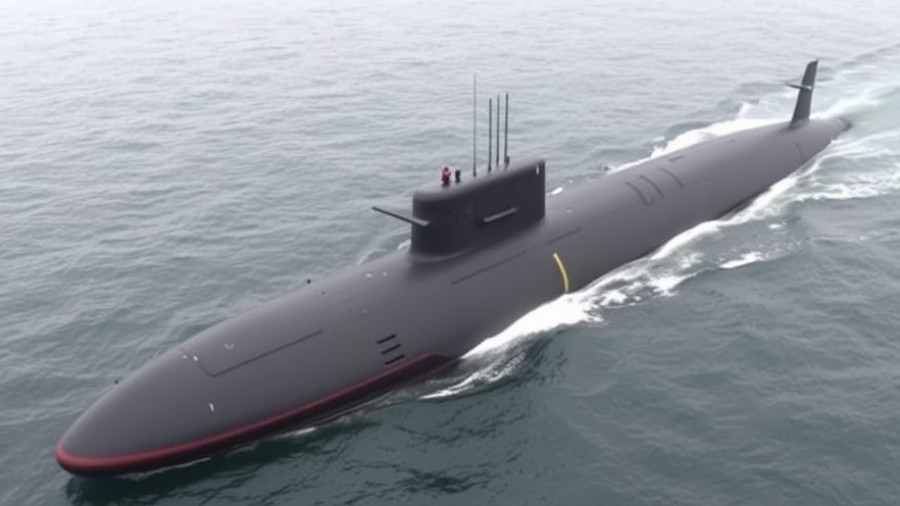
South Korea's Nuclear Ambitions: A Game-Changer?
In a surprising announcement, former President Donald Trump has proposed a historic deal which could see South Korea embark on a journey to develop its own nuclear-powered submarines, a capability that could reshape the balance of power in the Indo-Pacific region. Trump’s declaration, made through a post on his Truth Social platform, claimed that the U.S. would provide South Korea with nuclear propulsion technology, allowing for the construction of submarines at Hanwha's Philadelphia Shipyard.
The potential for South Korea to move from its current fleet of diesel-powered submarines to state-of-the-art nuclear-powered ones represents a significant leap. Currently, the Republic of Korea Navy (ROKN) operates a robust fleet of conventionally powered submarines, which includes newer models like the KSS-III; however, the strategic advantages of nuclear submarines—such as their virtually unlimited range and stealth capabilities—are compelling reasons for this shift.
Strategic Implications for the ROK Navy
The shift in capabilities would not only strengthen South Korea's naval power but also enhance its deterrence role against North Korea, which continues to develop its own nuclear capabilities. As tensions rise in the region, the operational advantages offered by nuclear submarines could mitigate South Korea's reliance on U.S. forces—an essential consideration as it seeks to bolster its own defense capabilities amidst regional uncertainties.
This move towards nuclear submarine capabilities has elicited mixed reactions globally, with concerns surrounding nuclear proliferation. South Korea remains a party to the Non-Proliferation Treaty (NPT), which frames much of the dialogue around its nuclear ambitions. However, Trump's willingness to share nuclear propulsion technology suggests a commitment to solidify military alliances in a period marked by uncertainty in Northeast Asia.
The Path Ahead: Challenges and Opportunities
However, the road to establishing a nuclear submarine program is fraught with challenges. According to various reports, details surrounding necessary legal frameworks, reactor fuel types, and nonproliferation safeguards remain ambiguous. Furthermore, tasks such as elevating a commercial shipyard to nuclear certification are significant undertakings requiring time and investment.
With Hanwha Ocean aiming to invest $5 billion into the Philadelphia shipyard, the long-term viability of this project will depend heavily on workforce availability and expertise. This raises critical questions regarding immigration policies, especially following recent crackdowns that have complicated staffing for manufacturing in the U.S. If this deal comes to fruition, South Korea's ability to build and maintain nuclear submarines will depend on both local capabilities and a harmonious relationship with the U.S.
Future Predictions and Strategic Dynamics
As both nations position themselves within a complex web of international relations, the implications of South Korea acquiring nuclear capabilities could extend far beyond the naval theater. From a strategic standpoint, this would enable Seoul to exert greater influence in regional security discussions, potentially reshaping alliances and countering North Korea's potential nuclear strikes with credible deterrence.
Moreover, with increasing Chinese naval operations in the region and its advancements in submarine technology, it is crucial for South Korea to adapt to evolving threats. The prospect of a fleet of South Korean nuclear submarines could have ramifications not only for military dynamics in the Korean Peninsula but also for U.S. military strategies in the Indo-Pacific.
Local Perspectives: The Mississippi Angle
For Mississippians, particularly those linked to the shipbuilding sector, this ambitious plan offers significant economic potential. The revival of shipyards and increased demand for skilled labor in nuclear submarines may stimulate local economies and generate job opportunities. Mississippi's shipbuilding history, coupled with the state's strategic position along the Gulf Coast, might see an uptick in partnerships and contracts within the context of this evolving military landscape.
Conclusion: What Lies Ahead
As the dialogue around South Korea's nuclear submarine ambitions unfolds, community engagement and awareness regarding the implications of such developments are crucial. The ramifications of these strategic decisions will extend far and wide, from military readiness to economic partnerships. Residents of Mississippi, as potential beneficiaries of this evolution in shipbuilding capabilities, should stay informed and consider how these changes can influence both local economies and national security.
Stay engaged with local and global developments. Understanding these strategic shifts can help you advocate for Mississippi’s interests in this evolving defense landscape.
 Add Row
Add Row  Add
Add 




Write A Comment